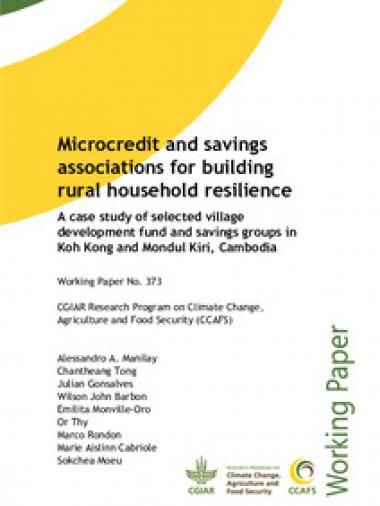Microcredit and savings associations for building rural household resilience: A case study of selected village development fund and savings groups in Koh Kong and Mondul Kiri, Cambodia

This case study was conducted to generate insights on the financial sustainability of selected VDFSGs and to gather information on members’ perceptions of the usefulness of these institutions in coping with household and climate change-related shocks or stresses. Financial sustainability was analyzed by conducting a detailed financial analysis of six selected VDFSGs to determine the sufficiency of interest payments as revenue to cover total costs as well as to evaluate loan recovery and equity build- up. Members’ perception of the usefulness of VDFSGs in helping them to cope with and adjust to family and climate change-related shocks/stresses was determined by conducting Focus Group Discussions (FGDs) and Key Informant Interviews (KIIs) among selected representatives of VDFSG members. Useful feedback of the financial performance and areas for improvement were generated. The Pu Hong, Pu Chhob, and Prek Svay VDFSGs were considered financially sustainable based on the results of the study. The study also revealed that the VDFSGs are considered most useful when there are crop failures due to extreme weather events and when there are medical emergencies in the household. The FGD participants and key informants expressed confidence that they are in a better position to cope with their vulnerabilities due to the presence of a VDFSG in their village.
Citation
Manilay A, Tong C, Gonsalves J, Barbon WJ, Monville-Oro E, Thy O, Rondon M, Cabriole MA, Sokchea M. 2021. Microcredit and savings associations for building rural household resilience: A case study of selected village development fund and savings groups in Koh Kong and Mondul Kiri, Cambodia. CCAFS Working Paper no. 373. Wageningen, the Netherlands: CGIAR Research Program on Climate Change, Agriculture and Food Security (CCAFS).